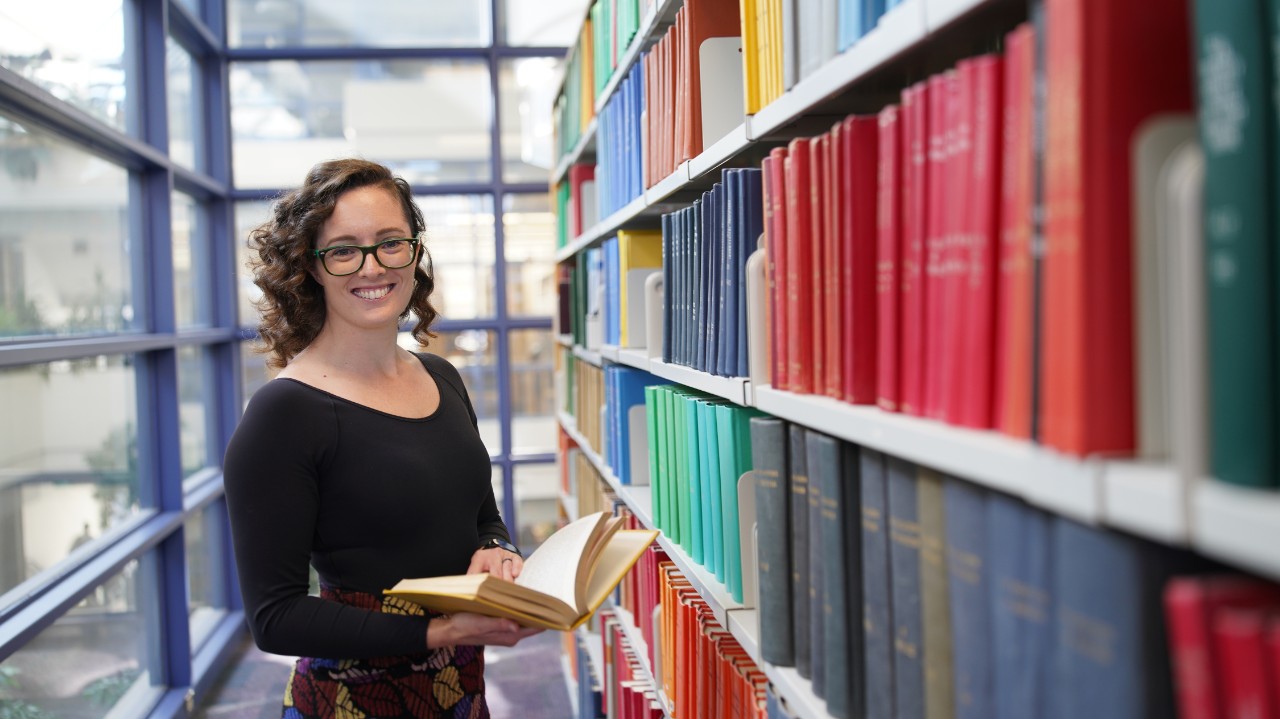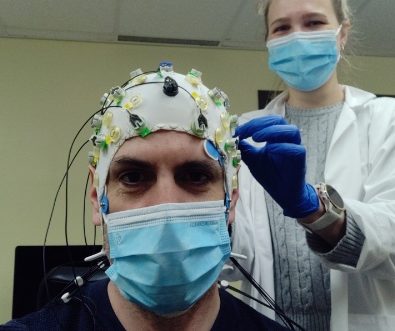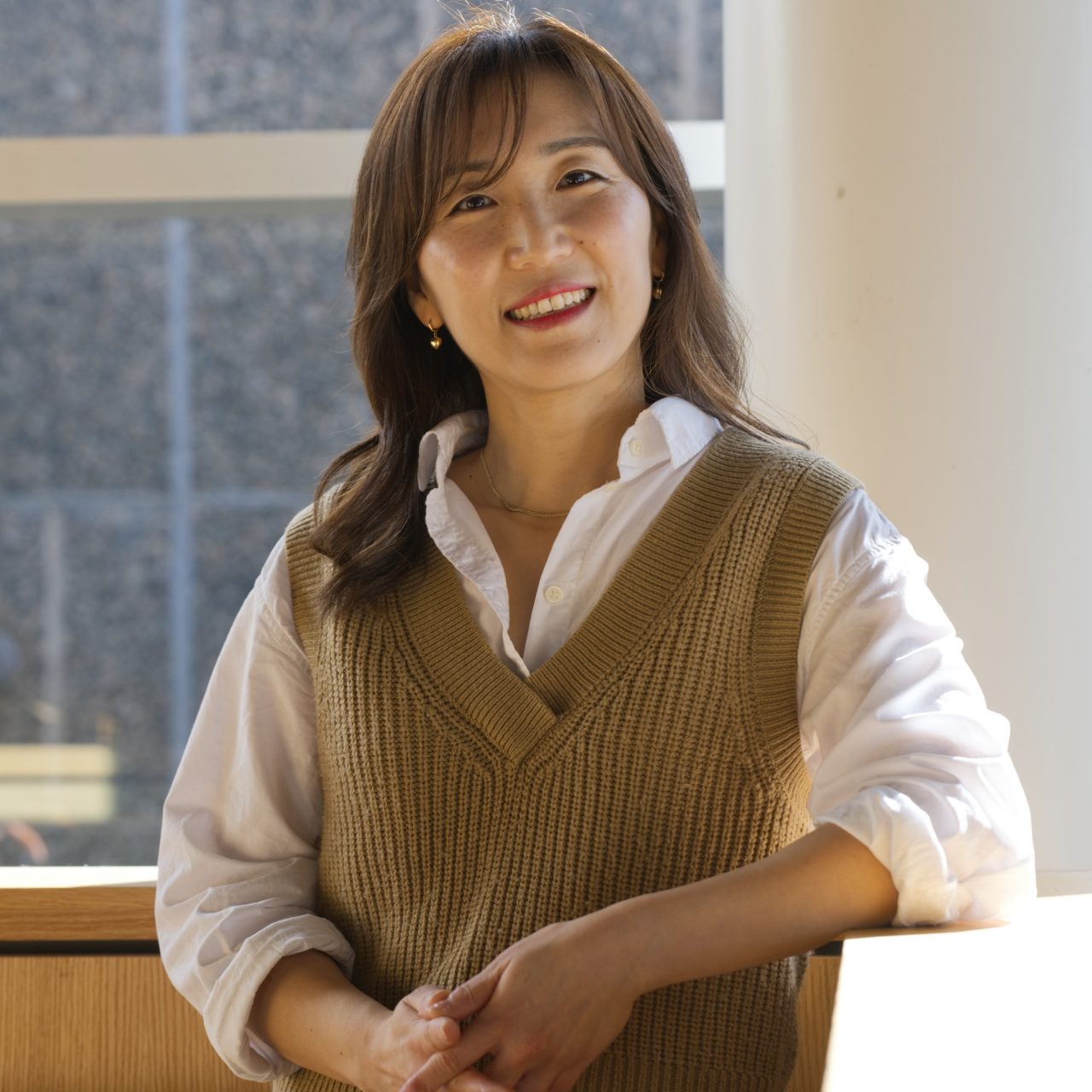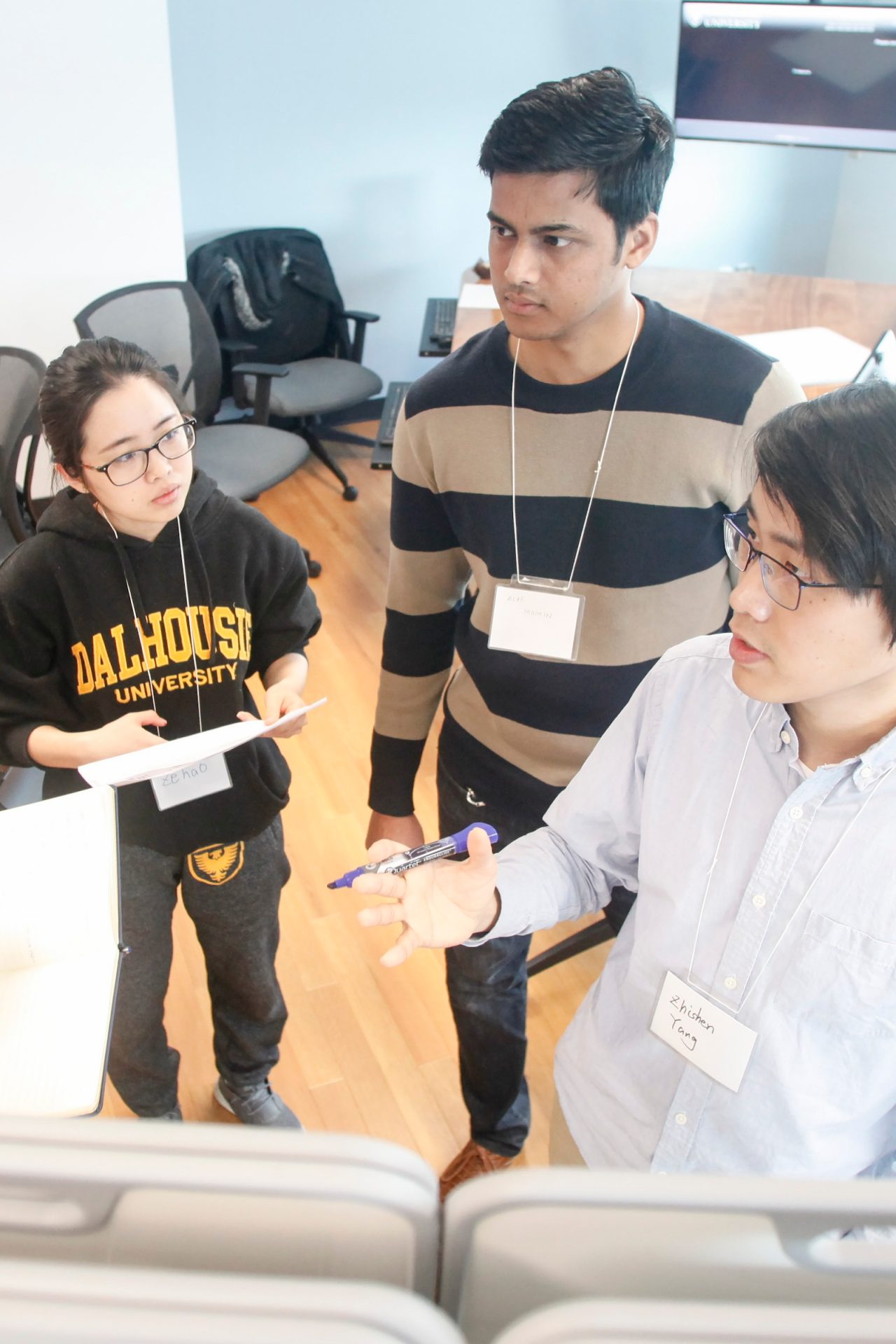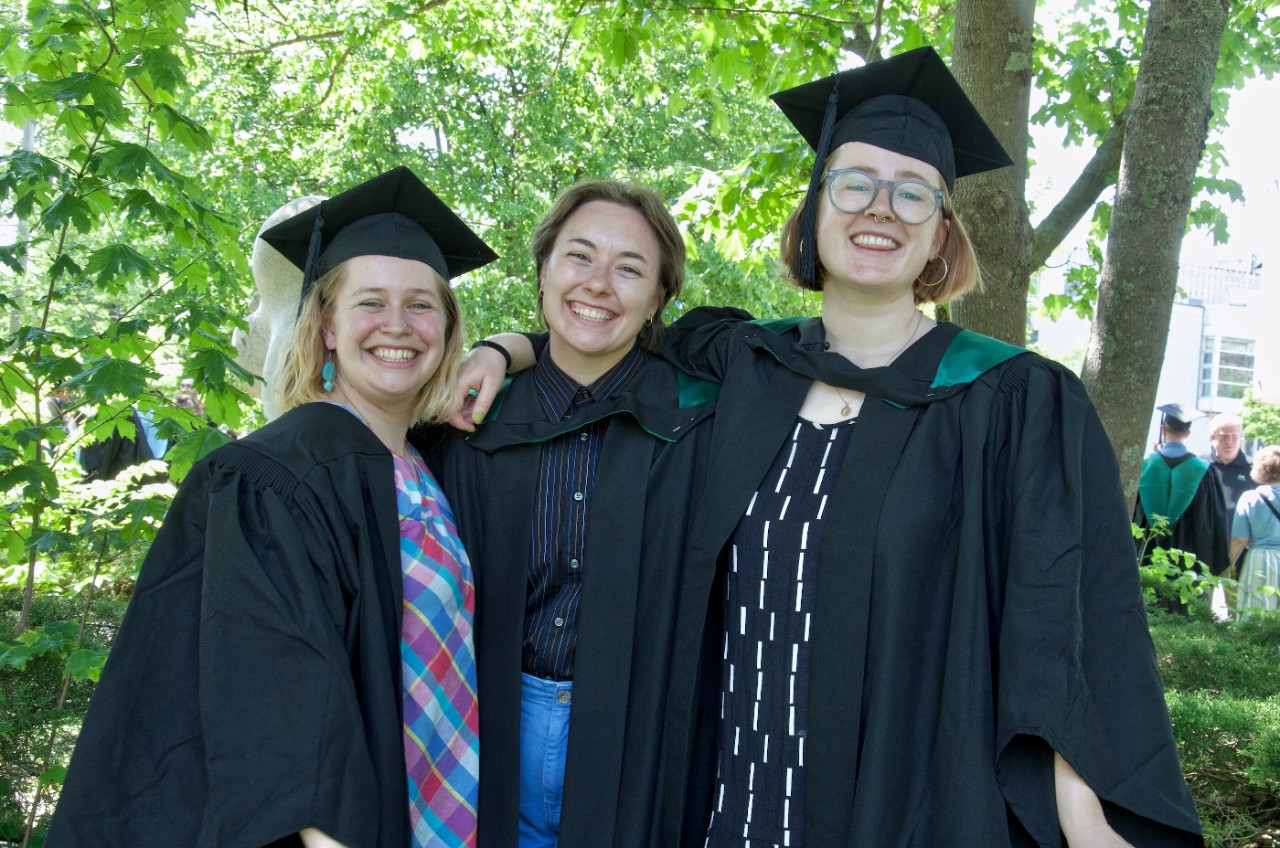Program overview
Our Master of Information (MI) program prepares graduates for a dynamic and growing profession. With a people-centered approach, the program equips you to discover, organize, analyze, and provide access to information and knowledge, ensuring effective management that delivers the right information to the right people at the right time.
Accredited by the American Library Association (ALA) and globally recognized, this program is ideal if you’re eager to lead in information-driven fields. Career paths are diverse and wide-ranging. Our alumni work as librarians, archivists, policy analysts, data and records managers, researchers, client service managers, and knowledge management consultants.
Personalize your learning with certificates, combined degrees, work-integrated learning, reading courses, and thesis options. This is a direct-entry program, meaning all undergraduate degrees are acceptable, and no work experience is necessary for admission. You can directly enter the profession after graduating.
Application process
Deadlines
The Master of Information program is designed for September admission and has a Fall intake only.
Exception: a January start is not recommended, but applicants who transfer from another Library & Information Studies (LIS) program, or who possess considerable experience in the field may request consideration for a January admission. January start is not possible for international applicants. Requests may not be approved. Please contact us via email at inform@dal.ca about these options before beginning your application.
Deadlines for September 2026 admission are as follows:
International applications (except US): January 31, 2026
International applications (US only): April 15, 2026
Domestic applications: August 1, 2026*
Scholarship deadline (domestic students): March 1, 2026
*Canadian citizens or Permanent Residents of Canada (proof of PR must be provided). We recommend applying early and no later than April 1st when possible.
How to apply
Supporting documents
Applicants should hold a four-year bachelor's degree (or equivalent) from an institution recognized by Dalhousie University. The Grade Point Average (GPA) should be a minimum of 3.0 (B) on a 4.3 scale in the last two years of study (60 credit hours).
As per Faculty of Graduate Studies regulations, we cannot accept applicants that do not have an undergraduate degree.
Unofficial/partial transcripts:
- These are acceptable at the time of application. HOWEVER, official/final versions must be submitted to the Faculty of Graduate Studies within 90 days of starting the program, if accepted. A hold will be placed on your account if you do not meet this deadline. Please make a plan ahead of time to obtain and submit your official transcripts.
Please upload unofficial transcripts to the online application portal.
Official/final transcripts:
Must include all final marks, the degree name/type, and the date the degree was conferred (graduation date). If this is not stated on the transcript, documentation must be provided from the University confirming this information.
Submission options are: Electronic file-transfers from the issuing institution and from services such as Parchment, National Student Clearinghouse, eScrip-Safe, or TranscriptNetwork. All electronic transcripts must be sent to inform@dal.ca.
Important transcript details:
Please submit one copy of all official transcripts from ALL post-secondary institutions attended (including transfer credits, study abroad, incomplete programs).
Transcripts submitted with applications become the property of Dalhousie University, are subject to verification, are not available for copying, and will not be returned to the applicant.
Notarized transcripts will not be accepted.
Transcripts in languages other than English or French must be accompanied by an English translation provided by the institution issuing the transcript.
- Transcript grading keys must be included with the transcript.
- Official transcripts are not required for any courses or degree you have completed at Dalhousie University (unless courses were taken through the Faculty of Open Learning and Career Development) or University of King’s College. Our office will obtain these transcripts on your behalf.
Please contact your referees prior to completing your application to ensure they agree to provide a reference.
All applicants are required to submit a minimum of two academic references.
In addition to the required two academic reference letters, applicants may submit one or two professional references that they feel would strengthen their application:
Applicants who graduated 3-5 years ago may submit one professional reference in lieu of academic.
Applicants who graduated 5+ years ago may submit two professional references in lieu of academic.
At least one academic reference is strongly encouraged for ALL applicants.
Reference Submission Options
- Preferred Option: E-reference System: In the references section of the online application portal, choose “No” to indicate your referee will be using the e-reference system. Enter a valid email address for each referee. Once your application is submitted and your application fee paid, the referees will receive an email request to fill out the online form. Admissions staff will be notified when the reference form is submitted. Please review the information carefully. It cannot be changed or removed once the application is submitted.
- Preferred Option 2: E-mail: In the references section of the online application portal, choose “Yes” to indicate that your referee will be submitting directly to our office. Ask your referees to fill out and sign the Confidential Reference Form [PDF-160 KB]. They may include a separate letter, but it's not required. The reference form must be emailed by the referee to inform@dal.ca. The referee should not include you on the email (references must be kept confidential from the applicant).
*NOTE: Work/academic email addresses are always preferred. If a referee must use a personal email address (e.g. gmail), please use Preferred Option 2 above. Otherwise the reference will be flagged by Graduate Studies and extra verification will be required.
In the online application portal (under Supplemental Documents), please upload a CV/Resume that summarizes academic and professional achievements, work experiences, and any other relevant information to support the review of your application. No specific format required (PDF preferred).
The application essay is an important component of your application and will be reviewed closely by the Admissions Committee.
In addressing the following points, you will connect your goals for both the Master of Information (MI) Program and career, to the Information Management profession. This will enable the Admissions Committee to evaluate your fit for our Program.
To achieve its objectives, the program seeks to recruit the person who:
brings a passion for service to all information management roles
is a critical thinker who continually examines their own assumptions about the information professions
demonstrates a commitment to the values of the information professions and an understanding of societal values affecting the organization, retrieval, evaluation and use of information and ideas.
In the online application portal (under Supplemental Documents), please upload an application essay. This should be 5-6 pages double-spaced and address the following questions:
Tell us about your MI Program goals. How will the MI program help you achieve them?
What are the strengths you would bring to the MI Program and to the information management profession?
Most professional occupations rely on teamwork. Demonstrate how your participation on a team has contributed to the success of a team’s objective.
New information technologies shape changes in the profession. How do you view technological advancements affecting you as a student? As an information management professional?
IT competencies (see below): please explain your level of competency in the listed areas. If you do not currently have these competencies, indicate how you plan to meet the requirements before January of your first year in the Program.
The Information Management field is a dynamic and changing environment; provide evidence of your adaptability in a changing context.
Describe how your prior work experience (part-time or full-time; paid or voluntary) in any setting has shaped your MI goals.
Explain any gaps or deficiencies in your academic record, or any other factors you feel are relevant to your application.
IT Competencies
MI courses rely heavily on information technology through the use of databases, word processing, spreadsheets, and presentation software. To ensure successful completion of the MI, students entering the program are expected to already have the following basic technology skills or acquire them by the end of the first term.
working knowledge of basic computer operations (e.g., running programs; creating, managing, printing files; etc.)
ability to use file managing features (e.g. Windows Explorer, OS X Finder) and perform routine application functions (file copying and duplication, using external drives, zipping and unzipping files, cloud storage like Google Drive, OneDrive, etc.)
proficient word processing skills, including creating, formatting, and editing complex documents
an understanding of spreadsheet software (e.g. Microsoft Excel) and presentation software (e.g. Microsoft PowerPoints)
proficient use of email, and online collaboration tools (e.g., Microsoft Teams)
Experience with a variety of software is advantageous. In certain courses, students may be expected to reach an understanding of applications and/or languages not included in these basic requirements (e.g., Database Management Systems, content management systems, JSON, HTML, CSS, and JavaScript).
Proof of English Language Competency
English is the language of study at Dalhousie, therefore all applicants whose first language is not English must demonstrate their capacity to pursue a graduate-level program in English before admission.
Note: The language competency test may be waived if the applicant has completed a degree that meets both of the following requirements:
The degree is from a recognized university where the language of instruction is English.
The university (or campus location) where the degree was obtained is in a country where English is an official language.
Required minimum test scores for MI admission:
TOEFL:
Computer: 250
Internet-based: 100
TWE: 5.5
Paper: 600
MELAB: 95
IELTS: 8.0
CanTest: 4.5 (with no band score lower than 4.0)
CAEL: 70 (with no band score lower than 60)
Pearson English Test PTE Academic: overall score of 65 and nothing below 54
DAL EAP Program: View the English for Academic Purposes website for details
Test Taker copies of English Language reports are not accepted; they must be official copies sent from the test centre. Standardized test results (such as TOEFL, GRE, GMAT, etc.) will only be considered if they do not expire on or before the date for which you are applying. Test scores are valid for two years from the date the test was written.
After you apply
Program and course details
The MI degree is a 20-month course of study for full-time students. A total of 15 half-credit courses (45 credit hours) and the non-credit Practicum are needed to complete the degree
Full-time status: a minimum of 3 half-credit courses in a single term is considered full-time status. Typically, full-time MI students take 4 half-credit courses in both the fall and winter terms.
Part-time status: less than 3 half-credit courses in a single term is considered part-time status. Students taking the degree part-time have 7 years to complete the degree.
Are you eligible to complete your degree even faster?
Bachelor of Management graduates with a Managing Data and Information major may be able to reduce their MI degree requirements by 2 half-credit courses . Please contact inform@dal.ca for more information about this option.
Additional Options
These certificates are only available to current students in the Master of Information (MI) program at Dalhousie University.
Align your learning with your career aspirations and showcase achievements in a specific field of Information Management.
For MI students wanting a more specialized learning experience, we offer a suite of MI Certificates. These Certificates allow students to concentrate their studies in the following areas: Librarianship, Librarianship – Youth & Children’s Services, Archives, User-Centred Design, Information Management and Policy, and Data Management. See below for more details.
Each certificate requires completion of three Elective Courses (9 Credits). During their degree, MI students can choose to complete up to two Certificates. The electives within the Certificates will count toward both the Certificate and the Degree.
Important: If an elective course is included in one Certificate, it cannot be counted towards another. The only exceptions are INFO 6500 (Community Led Services) and INFO 6370 (Records Management).
Certificate Requirements:
Students who achieve an A-minus (3.7 GPA) or higher average in their first 8 MI courses may consider the thesis option in lieu of 4 half-credit electives. Thesis work is subject to approval and is undertaken according to the research standards required by the Faculty of Graduate Studies (FGS). The thesis must display original scholarship and must merit publication.
Past thesis topics include:
- Marine Environmental Grey Literature
- Portrait of the Incarcerated Woman as a Reading Mother
- Information Behaviour of Pediatric Emergency Department Physicians
- An Extensive Review of Truth and Reconciliation in Canadian Archives.
Please contact us via email at inform@dal.ca for more information .
A reading course allows you to add flexibility to your studies and supplement the existing MI curriculum. This option allows you to co-create your own course with a supervisor to explore and develop a specific interest. With approval, students can delve into a topic in greater detail than might be possible within an existing course, or they may choose to study an area not covered by the current curriculum.
Past reading course topics include:
- GIS data visualization
- Indigenous children’s literature
- curatorial methodology
- healthcare knowledge management.
Please contact us via email at inform@dal.ca for more information .
What you will learn
These competencies are the measurable skills, abilities, and behaviours required to be a successful IM professional. All courses and learning experiences incorporate these competencies, and students will have the opportunity to gain these competencies through participation in all aspects of the program.
Adaptation: Information managers anticipate and adapt to trends in information management, support organizational change, and promote a learning culture within the organization.
Collaboration: Information managers work effectively in teams and cultivate a culture of collaboration within the organization and build relationships with stakeholders.
Commitment to equity, diversity, inclusion, accessibility, and decolonization: Information managers practice and critique the principles of equity, diversity, inclusion, accessibility, and decolonization for participating in an inclusive and socially just society.
Communication: Information managers communicate effectively, listen actively, and are receptive to feedback and suggestions.
Digital and technological literacy: Information managers safely, responsibly, creatively, and effectively use technologies. They assess IT requirements of the organization or users and develop and implement IT strategies that support the organization’s mission.
Evidence-based practices: Information managers promote evidence-based decision making and policies. They use adequate methods to produce, assess, synthesize, and evaluate knowledge to support the organization’s activities.
Leadership: Information managers advocate the strategic importance of information for their organization or community, promote the professional values of the field, support the development of their peers, and mobilize people and resources towards the achievement of collective goals.
Learning: Information managers are reflexive, life-long learners who adopt a creative and innovative approach to their work.
Management: Information managers effectively manage projects, people and resources, and ensure that the information assets and practices of the organization support its values, mission and objectives.
User-centered design: Information Managers engage users and adapt services to their information needs and behaviours.
The MI Plan of Study is as follows:
INFO 0590
Practicum (required, non-credit) *more details below
INFO 5500
Information in Society
INFO 5515
Organization of Information
INFO 5520
Research Methods
INFO 5530
Information Sources, Services & Retrieval
INFO 5570
Organizational Management & Strategy
Two Advanced Technology electives
One EDIAD elective course
Seven other MI electives
Note:
Not all courses are offered every year. It is the students' responsibility to ensure they plan their schedule accordingly.
Full course descriptions can be found in the Academic Calendar. Syllabi may be available upon request.
INFO 5570: To be taken in the final year of the MI degree.
Students may take electives outside the program.
INFO 0590.00 Practicum is a required, non-credit course for all MI students. It is a work placement in a real-life information setting. It is a key element in the professional training for information management students.
The Practicum has three primary objectives:
Academic: The student will apply, test, and evaluate the MI competencies and theory learned in the classroom.
Professional: The student will refine their goals, explore areas of interest for future employment, increase their network of professional contacts, and gain practical skills and knowledge.
Personal: The student will gain confidence in their understanding of information management concepts and feel equipped to tackle challenges inside and outside the classroom.
The INFO 0590 placement can be:
- A. 100-hour placement (Practicum): typically unpaid, usually occurring in April, working under the supervision of an experienced Information Management (IM) professional
- B. Extended (500+ hours) IM work placement: which includes approved pre-admission employment, or pre-graduation employment.
Please contact us via email at inform@dal.ca if you have questions about the Practicum.
Fees and funding
The MI program is a per-course-fee program. The amounts provided below are estimates. Tuition/fee amounts vary year-to-year. Questions about tuition/fees should can be directed to Student Accounts
Estimated cost breakdown
For more detailed cost information, please refer to the current Tuition Fee Schedule (Masters > Management > Information).
International students: Students who are not Canadian citizens or Permanent Residents are also required to pay an additional International Tuition Fee.
Faculty-specific scholarships
The Faculty of Management offers scholarships for MI applicants as well as faculty-wide scholarships with graduate-student eligibility.
Employment Opportunities
There are a variety of student employment opportunities available throughout the academic year. Contact us for more information (inform@dal.ca).
